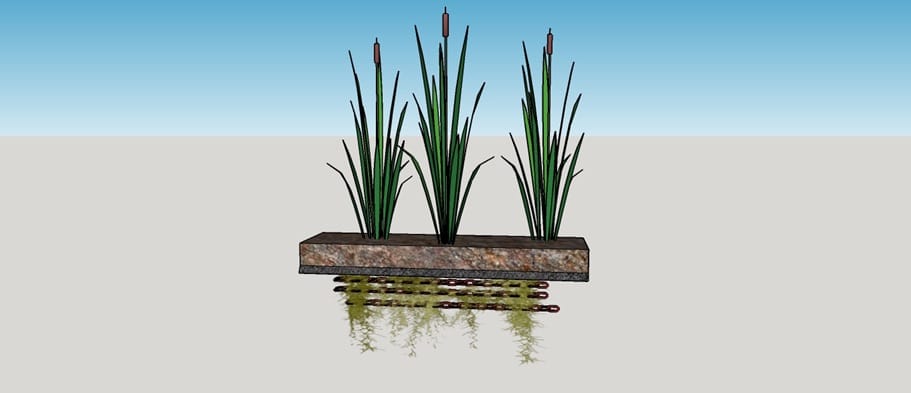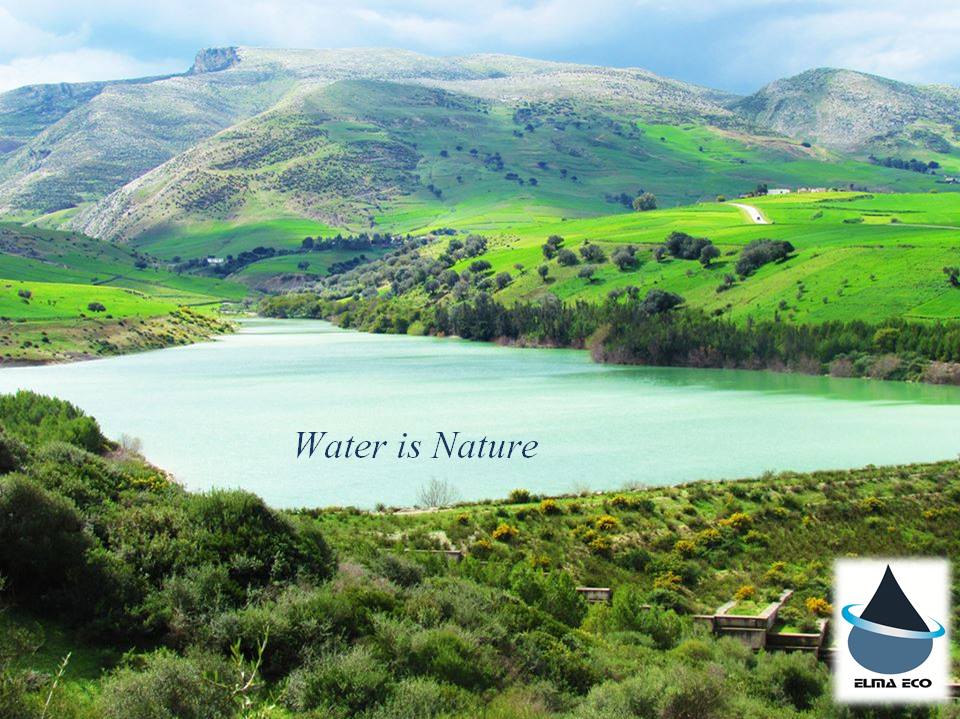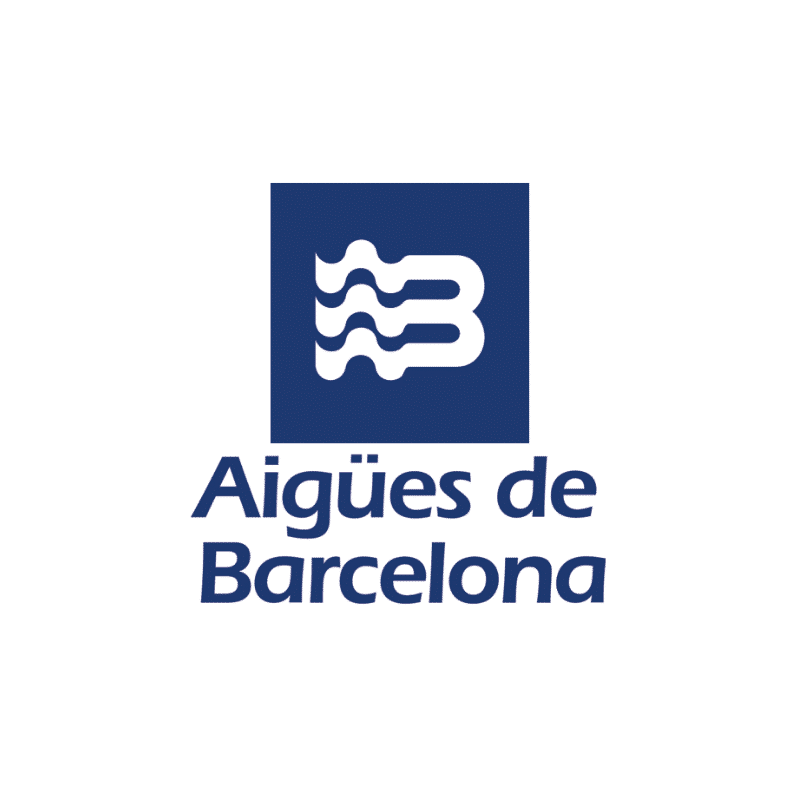Tunisia (Sfax)
Tunisian water resources are especially scarce. Thanks to a farmer’s daughter, water recycling can be a valid solution for water preservation.
“Water is central to the social, economic and political affairs of the African continent, and of the world.” – Nelson Mandela
Given that most of Tunisia is situated in an arid zone, water is an especially valuable commodity. Climate change, combined with poor planning around a rapid urbanisation and a growing population, has put pressure on the already scarce water resources of the country. Plus, due to a lack of infrastructure, the distribution of water is uneven and rural populations face increasing water insecurity.

While the government scrambles about trying to harness non-conventional water sources, Tunisian entrepreneur Mona Lamine (pictured below) knows that better water management and recycling could help dispel tensions and anxiety among farmers. With her company, Elma Eco, Mona develops natural solutions and ecological and sustainable techniques for water conservation in both urban and rural areas – using plants. ‘Elma’ means water in Arabic.
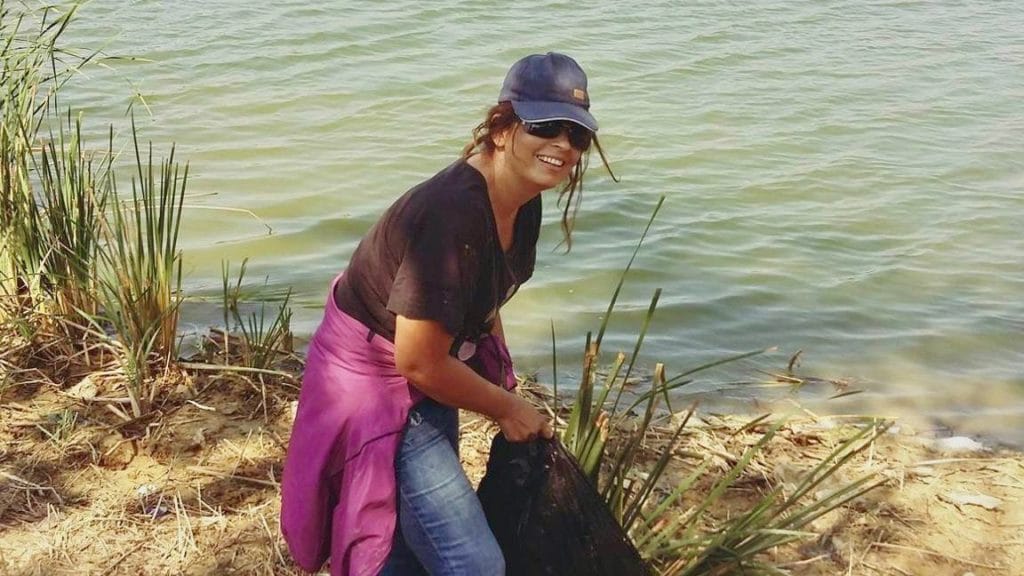
Mona knows her chosen topic well, having worked as an environmental engineer in water treatment for two separate research laboratories: ”I am the daughter of a farmer who suffered greatly from the deficiency of water in our region located in the south of Tunisia, the city of Sfax. This is why I choose to study geology at university and then focus on water treatment and recycling – and why I work on developing low cost water treatment solutions,” she tells us.
The current situation of water resources and their uses in Tunisia present challenges which are common to many regions of the Mediterranean basin; limited resources are widely exploited to meet growing needs, and restrictive climatic conditions reinforce tensions.
“This situation should surely prompt the government to orient its national strategy to better manage our water resources and adopt a policy based on the preservation, economy and development of non-conventional resources,” Mona explains. “A sustainable water management strategy would involve the development of water-saving techniques and the reuse of unconventional resources such as rainwater, seawater and brackish water, wastewater and grey water .”
Projects that reuse of water are becoming increasingly popular, but the standards governing the quality of reused water are becoming increasingly stringent, requiring a reconsideration of treatment systems. A recent treatment technique that is rustic, landscaped, efficient and widely accessible is the treatment of wastewater by phyto-purification (filters planted with wetlands). However, theses aren’t ideal owing to the high surface area requirements needed and the clogging of porous supports, especially for wastewater loaded with solid and organic matter.
Mona explains: “The purpose of water treatment devices is to discharge clean water into the environment, which prevents toxic pollutants from contaminating groundwater and protects the marine environment against eutrophication.”
eutrophication (noun)
when a body of water becomes overly enriched with minerals and nutrients which induce excessive growth of algae – and a global problem of water pollution.
“Wastewater is a potential source of pollution when it is released into the natural environment. Its management is increasingly becoming a priority issue in developing countries as accelerating urbanisation exacerbates the situation resulting from inadequate systems, technology and infrastructure.”
Mona’s Elma Eco decentralised wastewater treatment system presents no risk of clogging and occupies a very small area. “It has the advantage of removing two to three times more nitrogen and nearly five times more phosphorus compared to conventional phyto-purification systems. The highly efficient natural solution is most suited to the treatment and recycling of wastewater for cafes and restaurants located at the beach, as well as isolated homes, residences, municipal buildings and manufacturing plants for dairy products and fish farms.”
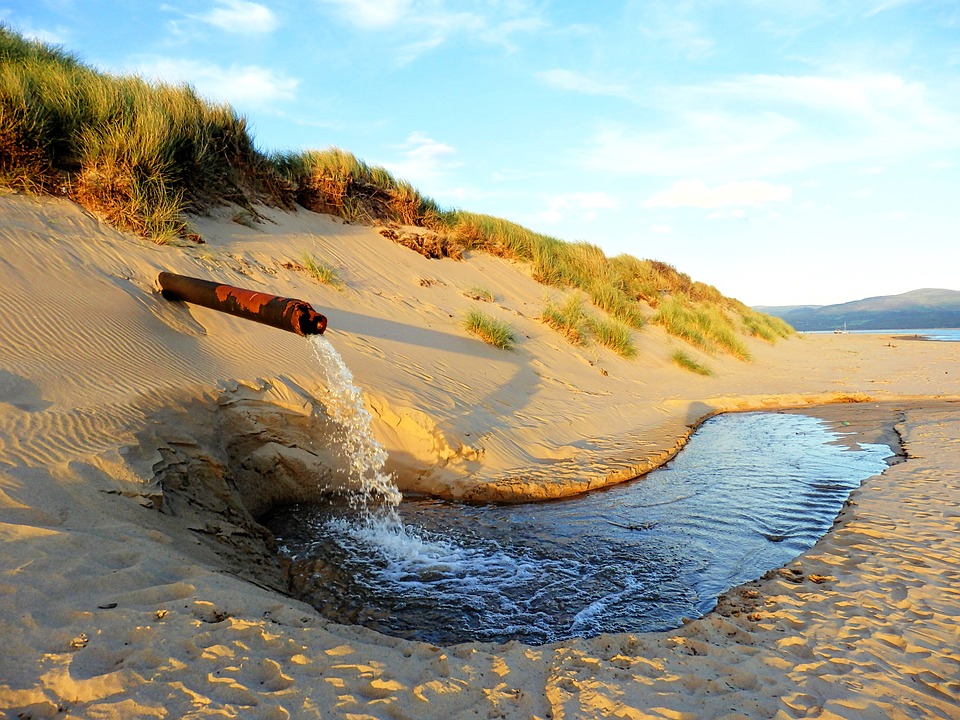
The Elma Eco water treatment devices rely on natural filtration by plants and natural materials – laterites (iron-rich soil) and esparto grass (alfa grass), which widely available in semi-arid and arid regions such as northwest Africa and southern Spain.
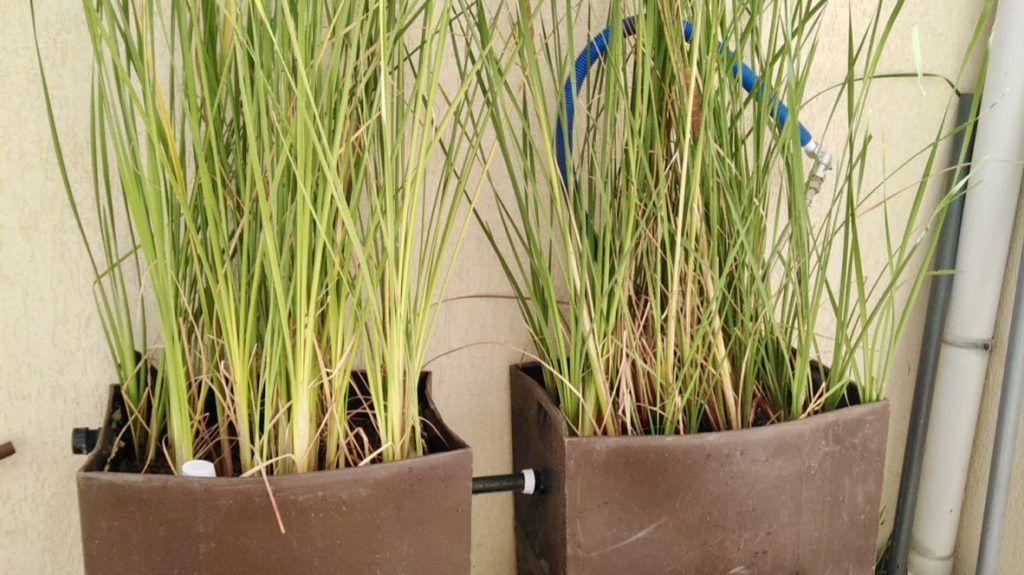
“These devices make it possible to recycle water for irrigation and watering gardens – and offer several ecological benefits, such as the enrichment of biodiversity,” she says. “Also, they are easy to install and maintain and don’t emit any bad odours.”
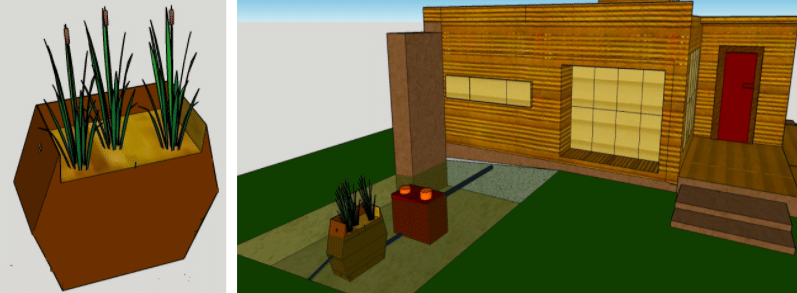
Mona has also created a compact solution for grey water recycling, collecting the water used in your showers, sinks, dishwashers, showers and baths, cleaning it up and plumbing it straight back into outside taps. “Grey water can represent up to 80% of the daily water consumption. This system is capable of treating 600 litres of grey water per day and is designed to be incorporated in the landscape area. Water is then reused locally for irrigation of the surrounding trees and flowers.”
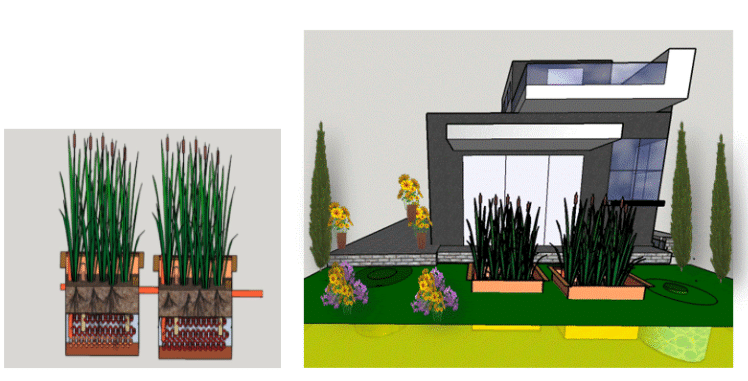
In 2020, she installed a wastewater treatment system in a seaside cafe-restaurant in the Rafraf region (Bizerte) in northern Tunisia and a grey water recycling system in a family home. Next she is working on developing a hydro-retaining fertiliser that can be easily extracted from these systems. “This product will be particularly suitable for green roofs, vertical walls and to save water consumption in agriculture.”
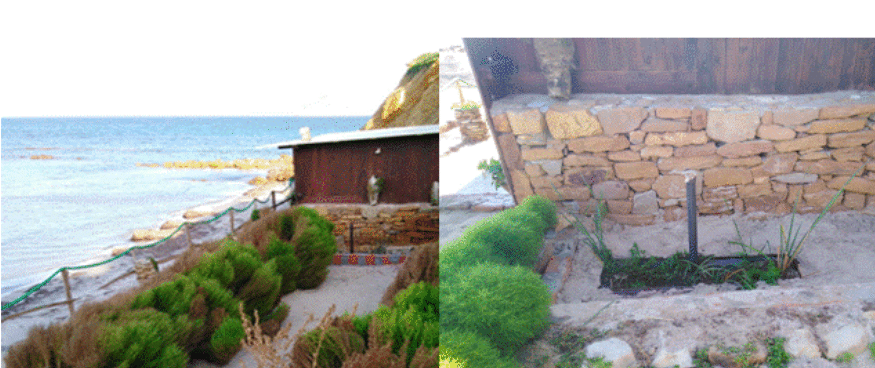
Wastewater treatment system at Rafraf beach
Mona says she has noticed an improvement in the quality of our seas and lakes since the pandemic confinement period from March 2020.
“If we reduce the pollutants, we can restore the clarity and purity of our seas and lakes. All water must then be treated effectively before being evacuated into the natural environment,” she adds.
As rain gets scarcer and scarcer, Mona’s main aim for 2021 is to get the government to support the installation of these systems so that people get more engaged with these kinds of solutions, especially cafe and restaurant owners – providing a low cost solution for the country’s crippling water crisis.
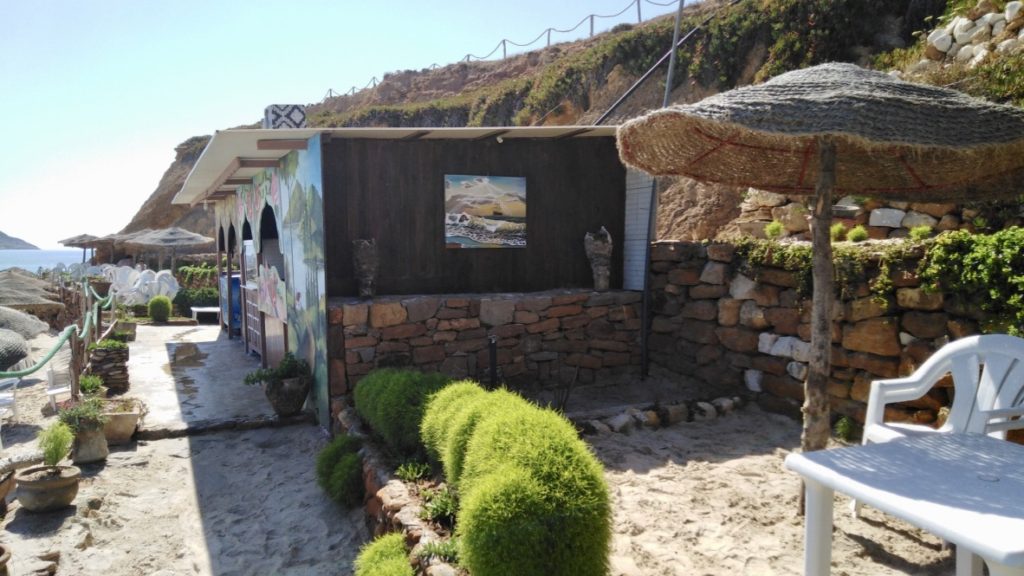
AtlasAction: Learn more about Elma Eco on Facebook.
Project leader
Mona Lamine
Partners
This project has been selected as part of MedFutures, a new content channel that maps the most innovative and inspiring solutions to the water and climate crisis in the Mediterranean and the people behind them. Atlas of the Future is excited to join forces with Aigües de Barcelona.
Support the Atlas
We want the Atlas of the Future media platform and our event to be available to everybody, everywhere for free – always. Fancy helping us spread stories of hope and optimism to create a better tomorrow? For those able, we'd be grateful for any donation.
- Please support the Atlas here
- Thank you!
